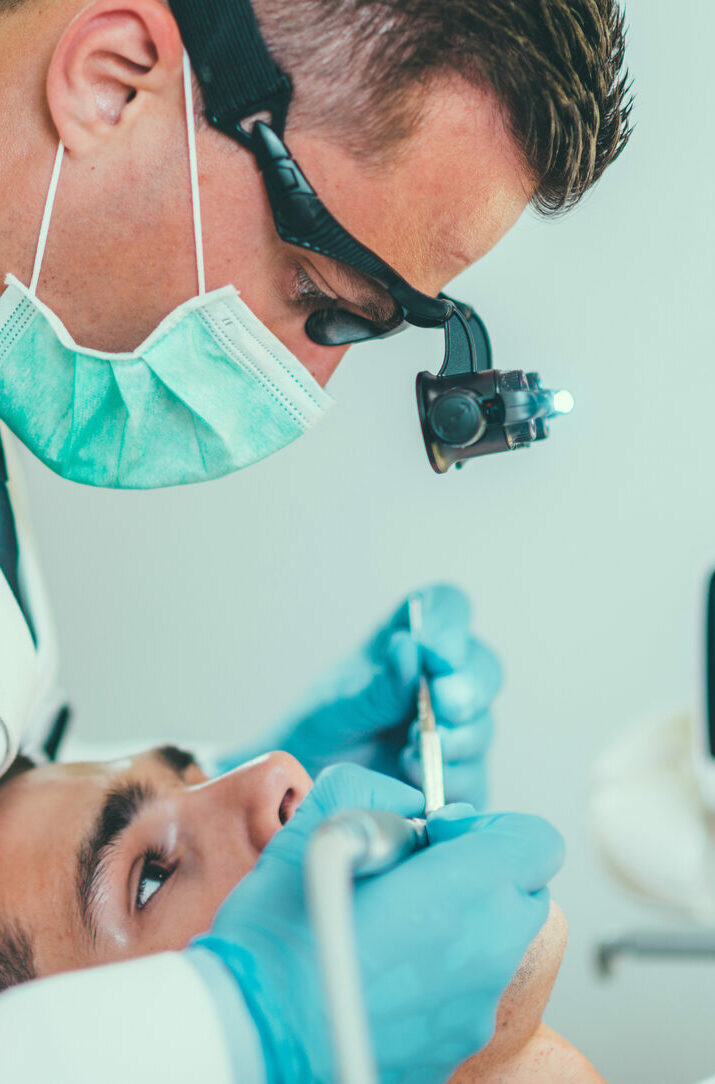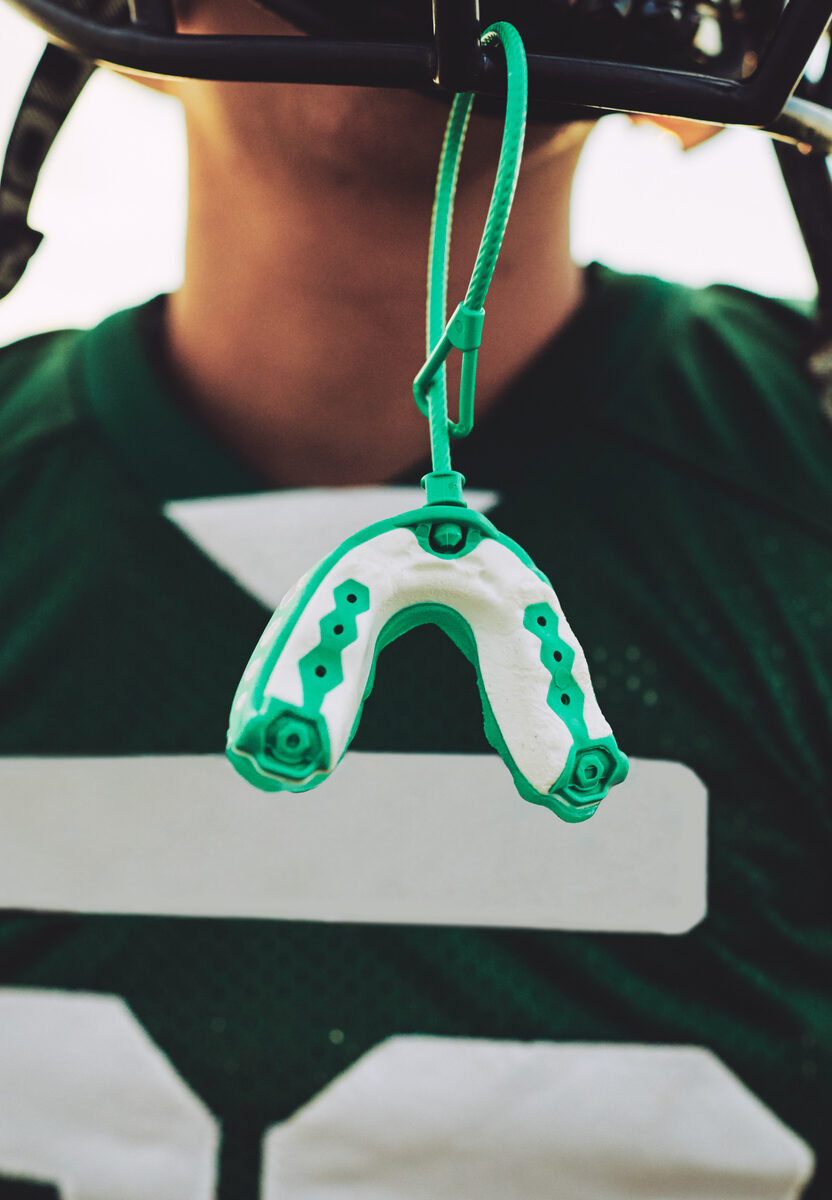Table of Contents

Table of Contents

Learn About Our General Dentistry Services
From fillings to extractions and jaw pain, our team of dental experts is trained to help you with your general dentistry needs. Blue Haven Dental offers care that is family-focused and prioritizes your comfort while producing great results.
Fillings
When a tooth is damaged, it might lose some of its inner materials. In response, dentists usually ‘fill in’ the tooth with a replacement material to bring it back to full health.
What is a Filling?
When a tooth is damaged, it might lose some of its inner materials. In response, dentists usually ‘fill in’ the tooth with a replacement material to bring it back to full health.
Fillings are most often performed to treat cavities and cracked or damaged teeth. Most fillings are permanent, though a dentist may provide a temporary filling to treat things like root canals or issues involving the tooth’s nerve.
Fillings can be made from a variety of materials, including gold, silver, porcelain, and composite resin. Some appear metallic, while others are coloured to look like teeth.
What Should I Expect From a Filling?
Fortunately, fillings are quick and painless.
Your dentist will start by making the tooth and surrounding area numb with a local anaesthetic. Then, they will use a dental instrument to remove the decay from the tooth, if there is any. They will clean out the hole to remove any bacteria or debris before filling the tooth. After filling, they will clean or polish the tooth.
Your individual case may require more steps.

How Can I Prepare For My Filling?
Continue to practice good oral hygiene habits as your filling appointment approaches.
Are Fillings Covered By Insurance?
Fillings are considered basic procedures and are covered by the majority of insurance plans. Refer to your insurance plan for more information.
What Should I Do After a Filling?
Continue to practice good oral hygiene habits after your filling. This includes regularly scheduled dentist checkups. If you notice that your filling is cracked or leaking, see a dentist immediately.
You may experience slight discomfort following your appointment, but it should go away after a few days. In some cases where the cavity was deep, sensitivity to cold could last for a few weeks but should gradually get better. If the discomfort or sensitivity lasts longer or worsens, call your dentist.

Dental Bridges
If you have a missing tooth or a large gap between your teeth, dental bridges can help. Dental bridges can do more than make your smile look great – they can help you chew and speak, and realign your mouth.
Bridges are usually made from porcelain and are coloured to look like teeth, though some are metallic.
Types of Dental Bridges
There are four types of dental bridges:
1. Traditional: held in place by dental crowns cemented to both natural teeth enclosing the gap
2. Cantilever: held in place by a dental crown cemented to only one natural tooth enclosing the gap (rarely used)
3. Maryland: held in place by metal or porcelain frames cemented to both natural teeth enclosing the gap
4. Implant-supported: held in place by implants
What Should I Expect From My Bridge Installation?
First, your dentist will numb the area to ensure a comfortable appointment. He may then file down the teeth that will hold the bridge to make room for the prosthetic material. If the surrounding teeth are not healthy enough to support a bridge, your dentist may recommend implants instead.
Your dentist will then make a mold of your teeth, which is used to make your custom bridge. He will then choose a shade that matches your other teeth and install a temporary bridge to keep you going until your actual bridge is ready.
Once your final bridge is back from the lab, the temporary bridge is removed and the final bridge is cemented permanently on the teeth.
How Can I Prepare For My Bridge Installation?
The most important thing to do is keep the teeth surrounding your bridge as clean and healthy as possible. This includes performing regular oral hygiene duties, including daily brushing and flossing.
What Should I Do After My Bridge is Installed?
Bridges last as long as they are taken care of – they typically last between 5 and 10 years. They will last longer if you take proper care of them. That means brushing and flossing, and scheduling regular checkups with your dentist.
Are Bridges Covered By Insurance?
Bridges are considered a major procedure by dental insurances. If your plan has major coverage, they will typically cover 50% to 80% of the cost of a dental bridge. Refer to your insurance plan for more information.
Benefits of Taking Proper Care Of Your Teeth

Fresh breath:
Brushing and flossing can eliminate bacteria that causes bad breath

Protect heart health:
Bacteria from your mouth can enter your bloodstream and increase your risk of heart attack or stroke

Protect from tooth decay:
Proper care will remove the food particles from your mouth, which would otherwise turn into harmful bacteria

And of course, you’ll keep your smile looking great
Tooth Repair
What Should I Do If My Tooth Is Broken or Chipped?
If you notice that your tooth is chipped or broken, you should contact your dentist immediately. Broken teeth may indicate that a dental emergency is taking place. Until you can see your dentist, there are immediate steps you can take to reduce the risk of a dental emergency.
First, rinse your mouth with lukewarm salt water. If there is bleeding, apply pressure to the point where blood is forming. You may also choose to take over-the-counter pain medication.
How are Broken Teeth Repaired?
Your dentist may choose a specific treatment method based on your individual circumstances. This could include:
- Filling or bonding the tooth
- Covering the missing part with a crown
- Extracting the remaining part of the tooth
- Performing a root canal


Why Do Teeth Break?
There are many reasons why a tooth might become broken or chipped. Anything from biting into a hard object to getting hurt in a contact sport can cause this to happen.
In some cases, a tooth may break due to a deep cavity reaching the pulp and causing it to be infected. The pulp is the inner layer of a tooth, which contains nerves. When a tooth is damaged by a trauma or the bacteria of a cavity infects the pulp, the outer layer of the tooth may break. In this case, your dentist will perform a root canal.
How Can I Prevent Teeth From Breaking in the Future
Performing regular oral hygiene habits is the best way to protect your teeth from breaking. That’s because these practices prevent cavities and strengthen your enamel, which is the protective outer layer of your teeth.
Avoid opening things with your teeth or using your them as a tool.
If you play contact sports, wear a helmet and mouthguard to protect your teeth.
Does Insurance Cover Tooth Repairs?
Most dental insurance plans cover some or all of the costs of dental repairs. Refer to your insurance plan for more information.
Root Canal Therapy
What is a Root Canal?
A root canal is a type of dental treatment performed on teeth that have become damaged as a result of an exposed nerve. The interior layer of a tooth, called the pulp, is connected to nerves. When the pulp becomes damaged, infected, or inflamed, the tooth can start to hurt to cold, hot or pressure. To repair damage to the pulp, a root canal is needed.
How is a Root Canal Performed?
During a root canal, your dentist will begin by numbing the area around the infected tooth. Then, they will clean out the interior of the tooth, removing any bacteria or infected particles. They will then fill and seal the tooth. To close the hole created, they will place a filling then they will usually do a crown to protect your tooth from fractures.
How Can I Prepare For My Root Canal?
Continue to perform good oral hygiene habits before your appointment, but try to be gentle with the infected tooth. Avoid chewing hard food on the tooth and avoid extreme temperatures.
What Should I Do After My Root Canal?
Your mouth may remain numb for hours after your root canal, and you may experience soreness for a short period. Getting a full rest will help you recover.
To avoid another root canal in the future, be sure to keep up with your regular oral hygiene habits.
Does Insurance Cover Root Canal Therapy?
Most dental insurance plans cover part or all the costs of a root canal. Refer to your insurance plan for more information.
Tooth Extractions
Why Might I Need a Tooth Extracted?
Wisdom teeth aren’t always the only teeth that need to be pulled. There are plenty of reasons why you may need one or more of your teeth extracted, including:
1. Tooth infection
2. Tooth decay or severe cavity
3. Preparing for orthodontic treatment
What Happens During a Tooth Extraction?
Typically, your dentist will begin by numbing your mouth with local anaesthesia. They will slowly loosen the tooth and remove it.
How Can I Prepare For My Tooth Extraction?
As a patient, tooth extractions do not require much preparation from your end. Tell your dentist about any pain or sensitivities you have experienced that involve the area from which the tooth will be extracted.


What Should I Do After a Tooth Extraction?
It is important to take proper steps to heal following a tooth extraction. Following your extraction, you must hold gauze against the hole and keep a consistent level of pressure. This will help form a blood clot, which will complete the extraction. The healing period is usually 1-3 days. If bleeding does not stop, contact your dentist.
Are Tooth Extractions Covered By Insurance?
Most dental insurance plans cover some or all of the cost of tooth extractions, as long as they are indicated as necessary by your dentist. Refer to your dental insurance plan for more information.
